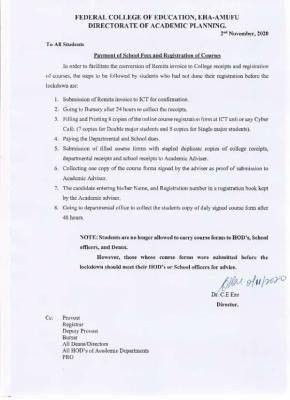
NO nation can aspire to achieve her full potentials without human capital development, and human capital development cannot be realized if the institutions charged to do so are crippled by maladministration, weak leadership structure and corruption.
This was the assertion of the Chairman, Independent Corrupt Practices and Other Related Offences Commission (ICPC), Barr. Ekpo Nta during the third national transparency summit of Heads of institutions of higher learning held in Abuja.
The theme of the summit was Restoring All Round Soundness to Higher Education in Nigeria.
He said, “the theme of the summit suggested that all is not well with our higher educational system and needs some kind of restoration which if not done, could jeopardize the sector. It is a known fact that Nigeria is experiencing huge challenges of access and quality, most especially at its tertiary education level. It portends danger and a bleak future for the generation unborn if not attended to urgently.
“The solution to Nigeria’s socio-political problems lies in a high quality and sustainable education system. Nigeria can do with better curricular, infrastructure and closer ties of its educational system with the industry.
“Any investment in this sector is an investment in the future of Nigeria. Quality and sustainable education sector, especially higher education, have the potential to create employment, improve wellness, create a well-informed or politically informed citizenry, and effectively tackle corruption and impunity in our body politics. “Our best brains reside within its walls and ICPC is proud to be associated with them but will come down hard on those who wish to tarnish their hard-won international image and repute.”
He noted that the Commission especially focuses on the youths through its interventions in the education sector in order to improve the sector’s integrity profile which has been having some ethical challenges.
According to him, the ICPC believes that education in pivotal in the national development plan of a nation, as the socio-political and economic development of any nation is, in many ways, determined by the quality and level of educational attainment of the citizens.
Nta pointed out that it is on this premise that the Commission is directly intervening in the higher education sector, starting with the universities to help the sector check corruption-prone practices prevalent therein and prevent future occurrences.
He maintained that in Nigeria, a number of existing universities lack the required quality, thereby exacerbating the problems of unemployment, youth restiveness, corruption and other social vices.
“The number of foreign universities, most of them of questionable quality, offering admissions to Nigerian students is on an alarming increase. It was reported that Ghana realises about $1bn yearly on account of education tourism, made possible because the country plans for, and actually has good quality educational system, steady academic calendar, better funding and improved infrastructure.
“Nigeria had once enjoyed that pride of place especially in the Commonwealth and with proper investments and solid ethical conduct, she can regain that lost glory. Following the deluge of petitions in respect of assumed or real incidents of corruption in the Nigerian higher education sector, which is depicted by dilapidation, low institutional esteem and poor quality products, the Commission decided to intervene in this crucial sector.
“Though our intervention is holistic, cutting across the basic, post-basic and the tertiary levels, the interventions in the tertiary level have been done through the following: a pilot University System Study and Review (USSR) exercise; closure of illegal degree awarding mills; establishment of students anti-corruption vanguards; regular interactive sessions held in universities for staff and students by top echelon of ICPC; and NYSC partnerships.”
According to him, since the professional treatment of any ailment starts with diagnosis, the Commission took the gauntlet by taking a decisive step to invoke Section 6(b-d) of its enabling law, to undertake a comprehensive study and review of the corruption-prone processes in the Nigerian University System.
He explained that this was to ensure that the university system meets the basics of transparency and ethical conduct in higher education management in conformity with international best practices. The pilot study, tagged ‘USSR’, was carried out in three universities.
The universities (University of Nigeria, Nsukka, Olabisi Onabanjo University, Ago-Iwoye and Salem University, Lokoja) were randomly selected on the basis of proprietorship and geography and comprehensively studied by a 12-man team assembled from various sections of ICPC.




